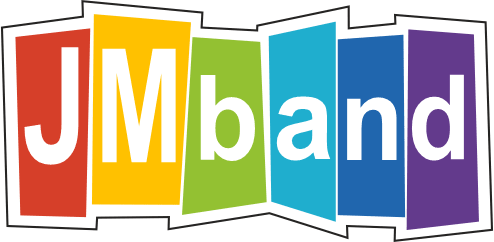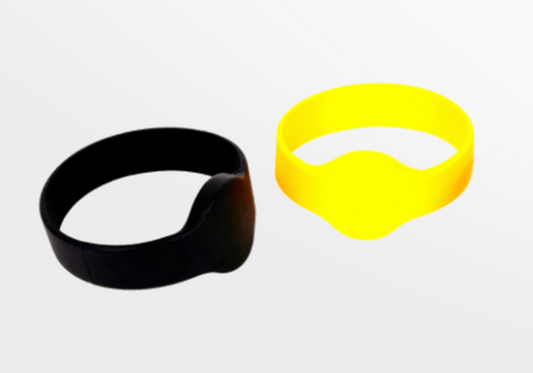Basics of RFID Technology: Components and Functionality
Radio Frequency Identification (RFID) systems have revolutionized the way industries track and manage data. An RFID system typically consists of three main components: antennas, transceivers, and transponders, each serving a unique purpose. Antennas emit radio signals to activate the tag and read and write data to it, while the transceiver decodes the information being sent. The transponder, also known as the RFID tag, consists of a microchip and an antenna. As you look to integrate RFID into your operations, understanding these components is essential for a seamless setup.
Transponders capture and store data, which is then transmitted to the transceivers through radio waves. The role of antennas is crucial as they act as the conduit for communication between the tags and the transceivers. This connectivity allows for efficient data collection, making RFID systems indispensable in supply chain management. For businesses such as JM Band, which deals with high-volume access and guest management, accurately understanding the intricacies of RFID is fundamental for optimizing operations. With the right setup, RFID systems can significantly enhance efficiency through accurate and reliable tracking of resources.
RFID vs. Barcode Systems: A Comparative Analysis
When it comes to inventory management, choosing between RFID and barcode systems depends on several factors. Both technologies offer unique benefits and have distinct applications. Barcode systems have been the industry standard for decades, providing a cost-effective solution for tracking items. However, the need for manual line-of-sight scanning can limit its efficiency compared to RFID systems, which offer automated and non-line-of-sight data reading capabilities.
RFID systems provide numerous advantages over traditional barcodes, including the ability to read hundreds of tags per second and extended read ranges, which is ideal for large-scale inventory and supply chain applications. This capability makes RFID particularly suited for industries such as logistics and retail. For hospitality venues, efficient inventory tracking through RFID ensures that resources are managed effectively, which is crucial for operations requiring precision, like those carried out by JM Band for event and festival management.
Exploring Security Concerns and Solutions in RFID Technology
Implementing RFID technology brings with it particular security challenges, but understanding these can lead to safer, more secure systems. The most common issues include reader and tag collisions, where signals overlap, causing data confusion, and unauthorized data access. Addressing reader collision can be achieved by strategically configuring reader ranges to avoid interference, a simple yet effective solution.
To secure RFID data from unauthorized access, encryption is paramount. Encrypting the data on RFID tags ensures that even if communication is intercepted, the information remains protected. By employing robust encryption protocols and access control measures, businesses can maintain the integrity of their RFID systems. Exploring these solutions allows companies to deploy RFID with confidence, maximizing its benefits while ensuring data security.
Innovations in RFID: Key Developments in the Technology
The landscape of RFID technology is continually evolving, with key innovations enhancing its utility across various sectors. An exciting advancement in RFID is the development of smart labels, which incorporate RFID chips into standard labels for better tracking. These smart labels, often used interchangeably with RFID labels, are increasingly used in retail and logistics to streamline operations and improve inventory accuracy. As businesses, including those in the hospitality industry, aim to enhance their operational efficiency and customer experiences, staying informed about these innovations is crucial for maintaining a competitive edge.
RFID Applications in Various Industries
RFID technology has found applications across a multitude of industries, each leveraging its capabilities to resolve specific operational challenges. In retail, RFID systems enhance inventory management by enabling accurate tracking, reducing out-of-stock situations, and providing seamless customer experiences. The hospitality industry benefits from RFID by improving guest check-in processes and access management, which are pivotal for delivering superior service.
Logistics and supply chain sectors use RFID for real-time tracking of shipments, ensuring better accuracy and efficiency. Case studies from European hotels and restaurants reveal that RFID implementation has led to enhanced operational fluidity and guest satisfaction. For a company like JM Band, which provides custom RFID products, these insights offer valuable lessons on how to harness RFID to achieve industry-specific objectives.
Understanding RFID and its Benefits for the Hospitality Industry
RFID technology provides numerous benefits tailored to the hospitality industry. By streamlining operations, RFID enables faster check-ins, personalized guest experiences, and improved security through automated access control. European hotels and restaurants leverage RFID systems to seamlessly integrate with existing management systems and enhance overall guest satisfaction.
For instance, RFID keys allow hotel guests to access rooms without manual assistance, while a card with RFID functionality further streamlines secure access and boosts convenience. Restaurant operations also see benefits through more efficient inventory management, ensuring that stock levels are optimal and reducing waste. With the right implementation strategy, RFID transforms hospitality operations, offering a sophisticated approach to managing resources and services effectively.
Implementing RFID in Hospitality: A Beginner's Guide
Starting your RFID journey in hospitality involves several key steps and considerations. Begin with assessing your specific needs and resources. Determine what aspects of your operations could benefit most from RFID integration, whether it’s access control or inventory tracking. Understanding your goals will aid in selecting the appropriate RFID solution tailored to your business.
Next, consider the potential hurdles, such as initial costs and technical integration challenges. Partnering with a reliable provider, such as JM Band, can mitigate these challenges with their expertise and fast service. Their user-friendly design tools ensure that even without extensive technical knowledge, implementing RFID becomes a smooth and efficient process. Remember, the aim is to enhance user experience and operational efficiency. Additionally, options like RFID silicone bracelet provide an effective method for quick guest verification.
Latest Advancements in RFID for Hospitality
The hospitality industry continually seeks to elevate guest experiences, and recent RFID advancements play a crucial role in this evolution. Developments such as contactless RFID solutions are paving the way for safer, more hygienic interactions, essential in today's health-conscious climate. Implementing such technology can significantly elevate guest confidence and satisfaction.
Moreover, innovations in RFID are leading to its integration with mobile devices, allowing for seamless digital key exchanges and room access via smartphones. These advancements not only improve operational efficiency but also offer guests a modern, hassle-free experience. Keeping abreast of these trends ensures that your hospitality services remain at the forefront of innovation.
RFID versus NFC: Understanding the Differences
While RFID (Radio Frequency Identification) and NFC (Near Field Communication) share similarities, understanding their differences is key to selecting the right technology. RFID typically offers longer read ranges and can handle large volumes of data, making it ideal for applications like inventory management. On the other hand, NFC operates at a shorter range, designed for secure, close-proximity interactions.
NFC is commonly used in contactless payment systems, providing quick and secure transactions, whereas RFID's broad application spectrum makes it versatile for tasks from asset tracking to enhancing event management. Analyzing your specific needs will guide you in choosing between RFID and NFC, ensuring the most effective and efficient application of technology for your business operations.





